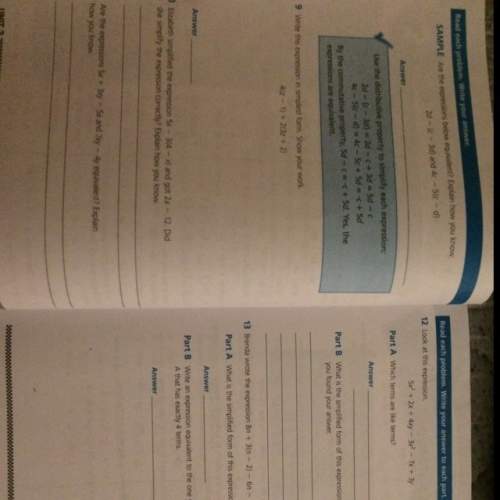
Mathematics, 01.09.2021 09:40 nunnielangley0
1. If you add two numbers together and square the result, then you'll get the same thing as squaring the two numbers and adding those
two results. (Note: "Squaring" something means to multiply it by itself. For example, squaring 8 yields 64.)
2. If you multiply a number by 6, add 11 to that result, and divide that result by 2, then you'll get the same thing as you would have if
you had simply multiplied the number by 3 and added 11 to that result
3. If you have 17 identical objects in a box and you add 4 more of the same exact object type to the box, then the box will now contain
21 of those objects.
4. If you add 13 to a number and subtract 13 from that result, then you'll end up with the original number
5. If you multiply a number by itself and take the square root of the result, then you'll end up with the original number,
6. If you multiply a non-zero number by 12, then the result will not have the same value as the original number.
7. If you add two number and take the absolute value of the result, then you'll get the same thing as taking the absolute value of the two
numbers and adding those two results. (Note: The absolute value of a number is it's distance from 0.)
8. If one number (the first one) is less than another (the second one) and you multiply each of them by some third number, then the first
times the third will be less than the second times the third,
9. If you add two numbers and triple the result, then you'll get the same thing as tripling the two numbers and adding those two results,
10. If you square a number, then the result will always be greater than or perhaps equal to the original number

Answers: 1
Another question on Mathematics

Mathematics, 21.06.2019 16:00
When turned about its axis of rotation, which shape could have created this three-dimensional object?
Answers: 3


Mathematics, 21.06.2019 18:00
Janie has $3. she earns $1.20 for each chore she does and can do fractions of chores. she wants to earn enough money to buy a cd for $13.50. write an inequality to determine the number of chores, c, janie could do to have enough money to buy the cd.
Answers: 2

Mathematics, 21.06.2019 18:10
Points a, b, and c form a triangle. complete the statements to prove that the sum of the interior angles of triangle abc is 180
Answers: 1
You know the right answer?
1. If you add two numbers together and square the result, then you'll get the same thing as squaring...
Questions








Geography, 28.01.2021 20:00

Social Studies, 28.01.2021 20:00


Mathematics, 28.01.2021 20:00


Spanish, 28.01.2021 20:00


English, 28.01.2021 20:00


Mathematics, 28.01.2021 20:00






